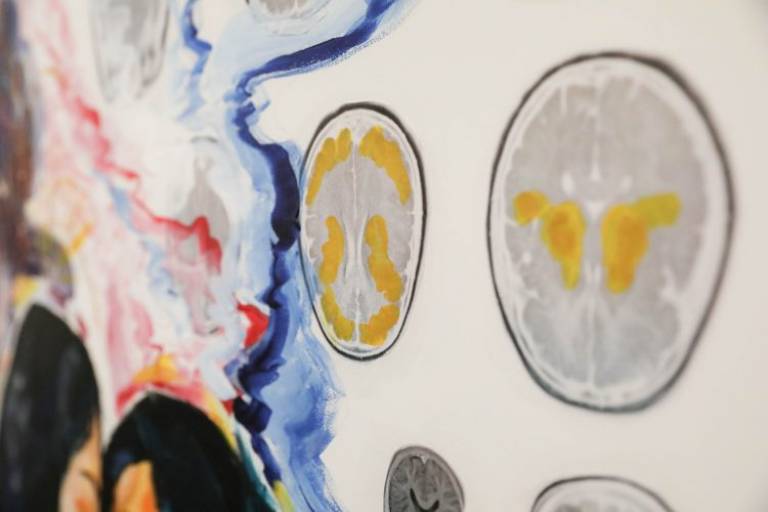New project funded to co-develop resources for young people living with OCD & their parents
4 February 2022
Dr Tobias Hauser, Wellcome Centre for Human Neuroimaging, UCL Queen Square Institute of Neurology, and Max Planck UCL Centre for Computational Psychiatry and Ageing Research, has received £83,500 in funding from Wellcome to develop accessible toolkits for young people and parents

The toolkits aim to better understand what is happening in the brain during Obsessive Compulsive Disorder (OCD).
OCD is the fourth most common psychiatric illness and among the ten most debilitating. Despite this, it is often neglected and carries a lot of stigma.
Dr Hauser and his team investigate why OCD mostly emerges during adolescence, and how brain development contributes to OCD. During this research, he has seen a significant disconnect between those affected by OCD and the neuroscience research.
The project, co-led by Dr Hauser and Cassandra Hugill, Public Engagement Manager at the Wellcome Centre for Human Neuroimaging, was designed in collaboration with lived experts and in partnership with OCD Action and the International OCD Foundation. It aims to overcome the prevailing disconnect between neuroscience research and the OCD community.
“We are incredibly excited to partner with Dr Hauser and the team at the Wellcome Centre for Human Neuroimaging on this project,” said Dr Jeff Szymanski, Executive Director of the IOCDF. “Our work together will help bridge an important gap in the information that is currently available to youth with OCD and their families.”
A series of explorative workshops will be run to understand the relationship between what someone with OCD feels is happening and what the research shows. From this, the team will develop two digital toolkits that will support those living with the condition and their parents.
‘OCD often manifests during adolescence, this can be incredibly challenging for both the young person and their parents. Therefore, we aim to develop engaging toolkits for young people and parents to understand that it is a treatable illness and to guide parents on ways to support their child.’ Says Dr Tobias Hauser
These toolkits will be embedded in existing support offers from both OCD Action and the International OCD Foundation (IOCDF), providing the most up to date research and understanding to those living with the condition.
Leigh Wallbank, CEO of OCD Action says ‘OCD Action are delighted to have the opportunity to be involved in this project with Dr Hauser; OCD is a hugely misunderstood illness that can cause great distress to young people and their families, but it is highly treatable. This project is an exciting opportunity to share important, accessible, information about OCD with young people and their families’.
Crucially, the project will be developed in collaboration with all people living with OCD at every stage. Through this, the project will also inform the research more widely, ensuring that the research is best meeting the needs of those it aims to help.
Links
Source
Image
Dear World-Stour Space Opening Night (credit: Jake-Fairnie)
 Close
Close

